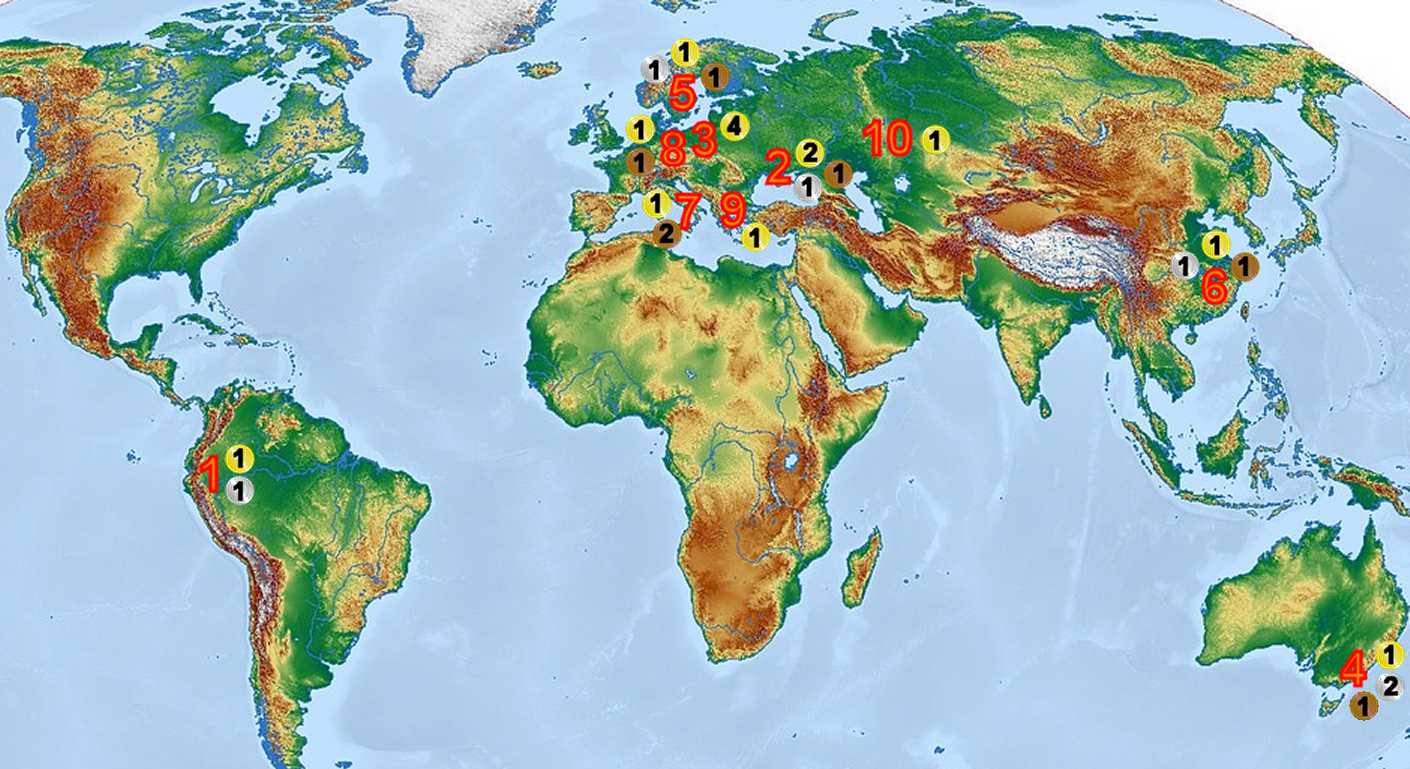
We'll Walk Trivia Quiz
Olympic Racewalking Gold Medalists
If you can't beat them running - walk. These athletes have bested the field at Olympic racewalking and some of them even more than once. Match them to their (modern) country and their medal count on the map - and learn a bit about racewalking as well!
A label quiz
by WesleyCrusher.
Estimated time: 3 mins.
